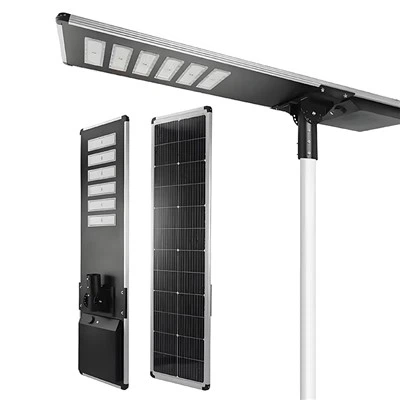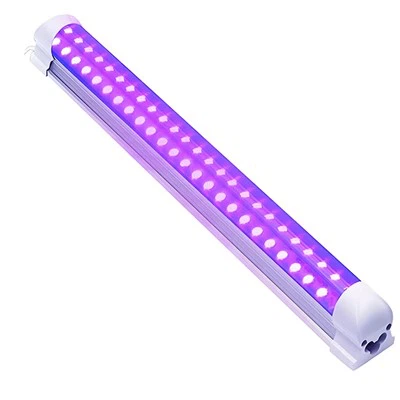Pros and downsides of solar energy are currently a popular topic. The sun has great potential to power our civilization in a safe and reliable manner because it is the most abundant source of energy on the planet.
The sun's radiant energy may power homes, companies, and even cars when it is transformed into heat and electricity.
The moment may be right for you to discover the benefits of solar energy and consider installing a solar energy system in your house. You can then assess whether solar energy is worthwhile.
It's critical to comprehend how solar energy functions while weighing your options for household energy. A photovoltaic cell converts sunlight into direct current (DC) power when it strikes a solar panel. After that, an inverter transforms it into alternating current (AC), which is used by the majority of home appliances.
How solar energy operates
Benefits of Solar Power
The more solar energy we can harness, the less we will need to burn fossil fuels. You can benefit from these solar energy benefits by installing a solar energy system at your residence:
1. Carbon emissions are decreased by using solar energy, a renewable energy source.
As solar energy is a renewable resource, you can always consume more of it. Solar power is clean energy. It doesn't produce any "greenhouse" gases that trap heat, such as carbon dioxide. It prevents the environmental harm brought on by drilling or mining for fossil fuels. Furthermore, solar energy also uses little to no water, unlike power plants that generate electricity using steam turbines.
2. Solar energy can lower the cost of your home's electricity
Your home's solar energy system can help you save money on your electricity bill and lessen your dependency on the grid. There may even be some residential solar energy system owners who have extra energy they can sell to the utility. Homeowners receive payment from the utility instead of paying for electricity. To reduce your home's electricity costs, you might not need to purchase a whole solar energy system. To help save money, simply choose solar lights, which are illuminated by the sun rather than your home's electrical system.
3. With Solar Renewable Energy Credits, using solar energy can save you money (SRECs)
Various states provide certificates for sun renewable energy (SREC). Each one stands for one megawatt-hour of solar-powered electricity. Electricity providers purchase these certificates to meet the Renewable Portfolio Standard established by their state, which mandates that a specific proportion of their renewable energy come from solar. Another method to profit from your investment is to sell SRECs for the output of your system.
4. Installing solar panels could increase the value of a home.
Solar panels installed on a home will probably increase the price. When weighing the advantages and disadvantages of solar energy, the money made from selling surplus power back to the utility and the reduction in electricity costs both go in the positive column. Solar energy systems for homes are quite valuable and can raise a home's market value. A home with solar panels may be valued up to $15,000 more than those without them.
Solar panels may be installed quickly and with minimum upkeep. Whether you want to enter into a solar lease or power purchase agreement, your solar provider will take care of both (PPA). Think about this when you consider whether solar energy is worthwhile.
5. Solar panels require less upkeep.
As there are no moving parts that need to be replaced over time, solar panels require little maintenance. To maintain them functioning correctly, simply keep them clean and in good physical shape. Between their low maintenance costs and average lifespan of 25 years, it can be easy to get your money’s worth when investing in solar panels.
In any environment, solar energy may produce electricity.
In any climate, solar energy systems may produce electricity. The fact that solar energy might be temporarily disrupted by weather is one of its drawbacks. The amount of electricity you create is less on cloudy days. Yet, the cold has little impact on output. Snowfall can actually help your solar system, as the snow cleans the panels as it melts and sun reflected off the snow increases the amount of light hitting your panels. The outcome is higher electricity output.
Problems with Solar Energy
The drawbacks of solar energy are diminishing as the sector develops and expands, bringing about economies of scale. Technology advancements are assisting the mainstreaming of solar. Here are how the downsides of solar energy and the pros and cons stack up.
1. The expensive upfront expenses of installing panels
Cost, the most frequently mentioned drawback of solar energy, is decreasing as the sector matures. The equipment is expensive to purchase and install at first. Even Nevertheless, if money is a concern, leasing choices might lower your initial investment. If you decide to buy, the system won't pay for itself until after you've lived in the house for a while. Renters would benefit more from this long-term investment than property owners.
2. The cost of solar energy storage
The temporary decrease in energy production during inclement weather has been one of the main problems with solar energy. The impact of days with low solar energy, however, is decreasing as a result of advancements in battery science. Alternatives are taking the place of outdated solar energy storage technologies like lead acid batteries. Lithium ion batteries give greater power at a lesser cost. Nickel-based batteries have an unusually long life. Scale and long-lasting power storage are promised by new technologies like flow batteries.
3. Not all types of roofs can use solar power
Solar panels won't function properly in every space. Orientation is crucial. You won't have enough solar energy if your roof isn't towards the sun. In general, sloped roofs perform better than level ones.
Roofing materials like asphalt shingles, metal and tiles make installing solar panels easier. The cost of installation could increase if your space is constructed of different materials. Roofs that can support solar panels contribute to their energy efficiency.
4. Sunlight is a requirement for solar panels.
It should go without saying that solar panels require sunlight to produce power. They can be ineffective during storms and overcast days, when you need electricity to light your home. They also won't create it at night when you need it. If you want to use solar energy only to power your home, your solar energy system needs batteries.
One of the more pricey parts of your system is the battery. They do require meticulous maintenance to extend their lifespan because, unlike solar panels, they do wear out. When comparing wind power to solar power, wind will continue to produce electricity as long as there is enough wind, even at night and during storms. Both are frequently used in residential systems.
Solar energy and Constellation Energy
There are other factors to take into account when comparing the advantages and disadvantages of solar energy for your home. Community solar initiatives are a fantastic way to benefit from solar energy without having to purchase and operate a system yourself.
Community solar might be the solution for you if your house and roof can't support solar panels or if you don't have enough money to buy one. By selecting this option, you consent to taking part in a program that entitles you to credits for each kWh the solar facility produces. According to your share of the project's energy, you receive a credit on your electricity bill.







